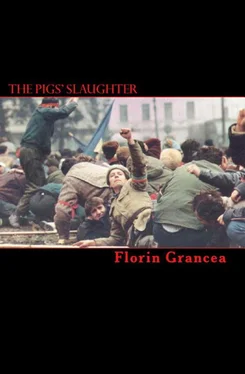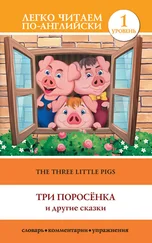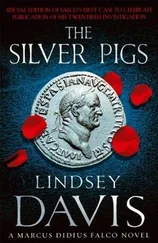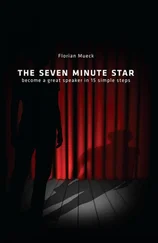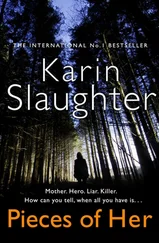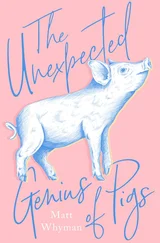And I went to buy shoes almost every day. And I kept that bank note of 100 lei in my pocket until its color faded and the paper looked worn out. Only two months after did I have the chance to use it. In Sibiu, from the communist version of a department store I bought, in the women’s section, a ridiculous looking azure blue pair of shoes. Size 36, and I paid 60 lei for them . I wanted to buy a size 37, and the store clerk, a nice old lady advised me to wait another couple of months until the store received new supplies, but I could not wait anymore. The shoes I was wearing were so used and full of holes that I looked like a beggar the communist country was showing to us in pictures when they wanted to tell us about how people lived in America. I was 14 and I was in love with Adriana, a classmate, not that she was aware, but still.
So I put on my new azure blue and ridiculous looking women’s shoes and walked away from the store, with my old shoes in a plastic bag. Those shoes would be repaired and used for gardening by my mother. That was the way it was. We never really threw anything away, not unless they were completely destroyed and could not possibly be used.
Anyway, my women’s shoes lasted less than I expected. In less than one month my feet were already too big for them so I was sweating with fear every morning when I put them on. Pain. Blood. Pain. Terrible pain. Every step was a nightmare and I was doing it to myself. Nobody was forcing it on me. That was sick. That was how communism felt for me and that is, right now, my strongest memory of those days.
I used to hide my wounded feet, but one day my mom saw my bloody socks and cried out and I had to take my shoes off and she was saying she was sorry and that she loved me, and she was crying and wouldn’t stop… Until the evening, when she phoned Auntie Anişoara and spoke with her and she sent me to visit her right away.
I remember it being almost night when I got there. I was barefoot. My mom wouldn’t let me wear those azure blue shoes again, so I entered my auntie’s house without taking any shoes off.
It was obvious she was shocked, too, but she tried to hide it. She gave me some sweets and then she gave me a pair of new socks and she invited me to the bathroom to wash and I did, and then, with motherly care my auntie mended my wounds and put the new socks on my feet.
“You look much better”, she said to me smiling, and I couldn’t help to remember that she was a kindergarten teacher, but then she said suddenly:
“The real present is not the socks, but these shoes”, and a moment later she handed me a mocha brown and slightly heavy shoe box.
“Mihai, your cousin, wore these shoes when he entered high school”, she whispered. I opened the box eagerly. There the shoes were, in very good condition.
How ever happy I was, that fact still remained that they were used shoes. But I took them and put them on, and they were my size, comfortable shoes.
Back home I asked my mother for pitch black leather paint and a thin brush. I repainted the shoes back to their original color and let them dry. The next day was an exciting morning. I put them on and rushed to school where I had a rehearsal for a play I was in, only to hear my teacher, Roxana Braga, the young and extremely beautiful wife of Braga, the writer, exclaim: “Nice new shoes, you got there, Florin!”, and I couldn’t tell if she really thought they were nice or she was mocking me for wearing someone else’s old shoes. Anyway, it wasn’t the first time I had to suffer because of my rare foot size. A few winters before, my sister got a new pair of skating boots for Christmas. White. They shined like the blade they were carrying underneath, and while they did, I couldn’t help wanting a pair for myself too. The plan was that we both would get skating boots that Christmas but my mom could’t find my size. But when I was already giving up hope, my dad put an announcement in the local newspaper, so one or our friends saw it and called us to tell us that a neighbor of his had a daughter and that she had had skating boots when she was in Junior High School. So my parents took a present to those strangers and asked them to sell them, if they still had them, to us, and they were nice people and took the money. So, like in a fairytale story before January ended I started to skate awkwardly beside my already experienced sister. We had some very nice winters back in the 80’s and we used to skate on frozen ponds or icy roads, and we stopped only then we had outgrown the boots, and we never got others to replace them. Those were the times. So years later, my mom gave our skating boots to Vasile’s daughter and they used them for a couple of weeks before their father traded them for booze. Pufoaică brandy perhaps, I’m not sure.
I hope you can understand how frustrated I was with shoes in communism. That was the reason I said what I wanted from our new freedom was to get a decent pair of shoes. Nothing more, nothing less. And I got the following year a new pair of white sneakers. The first and the last until 1994. I was living then in a rented apartment in Sibiu. My father wanted me to live close to my new High School. But we were terribly poor. We had trouble finding money to pay the rent and prices were skyrocketing. So I had to go to school every day with my one and only pair of sneakers and they got so many holes in them that my socks were visible from several different angles. Only when I graduated did my father buy me a new pair of buckskin brown leather dress shoes, but, then he died, and because that pair was the best pair we had in our house, we decided he should wear them on his final journey. God curse Iliescu and his men forever. Hungry people are never free, hungry people are always easy to manipulate, hungry people can’t even die in their own shoes, and this was the “freedom” we had after 1989.
Back upstairs, after crying, I found my dad and The Colonel absorbed in the story of the Revolution. The news was that the military unit that had Ceauşescu as prisoner was under heavy attack. The brave soldiers of our motherland were defending it with their lives and Ceauşescu couldn’t possibly escape. “I’m sure they’d rather put a bullet in his head than let him leave with the terrorists”, said The Colonel, and my half drunk father approved with a loud burp.
The fact is that the sound made by the gas gathered in my father’s stomach was louder than all the noises combined in and around Targoviste military base where Ceauşescu was held. Nobody was attacking it, so Kamenici couldn’t wait anymore. His nails were already gone, anyway. Somebody had to attack them. It was Ceauşescu or him, General Voinea’s threat was there, in his head, so somebody had to attack them.
It was early evening when somebody fired a shot, a single shot at their building. And all hell broke loose. Every soldier took their gun to the windows and started to fire outside the compound. Nobody was firing at them but that wasn’t the important thing. The important thing was that everybody believed that they were being attacked, as the TV said, by superior forces.
He ran towards the room where Ceauşescu and his wife were being held and shouted:
“These headquarters are being overrun. Kill them and fall back to defensive positions. Save yourselves!”
Those that got the orders were major Ion Boboc and lieutenant-major Iulian Stoica. The first of them would remember years later:
“It was about 5:00p.m. when something happened. A diversion, I think. Somebody fired towards our positions from the high school across the road. At that moment everybody started to shoot. It was hell on earth. People were shooting from offices, hallways, the dorms upstairs, and us, being inside, we had the impression that a battle was taking place inside the building. But the reality is that nobody was shooting but us. So the commander came and gave that order and left. A few moments later everybody deserted the headquarters. Left behind were only me, Stoica and the two Ceauşescus. I didn’t want to kill them so I got out of the room. The place was deserted. Silent. Everybody was outside in defensive positions. There were phones ringing, but nobody to pick them up or to ask what to do? So I looked outside and saw two soldiers with their guns pointed towards the headquarters’ doors and I realized what it was all about. After executing Ceauşescu we were to be shot for not defending the prisoners, or for deserting. And they would have said that Ceauşescu was killed by strangers that entered the headquarters during that confused battle.
Читать дальше
